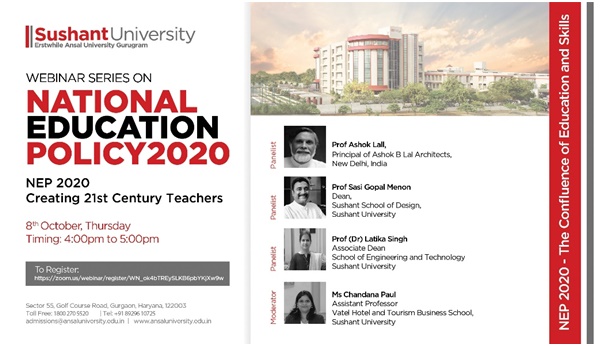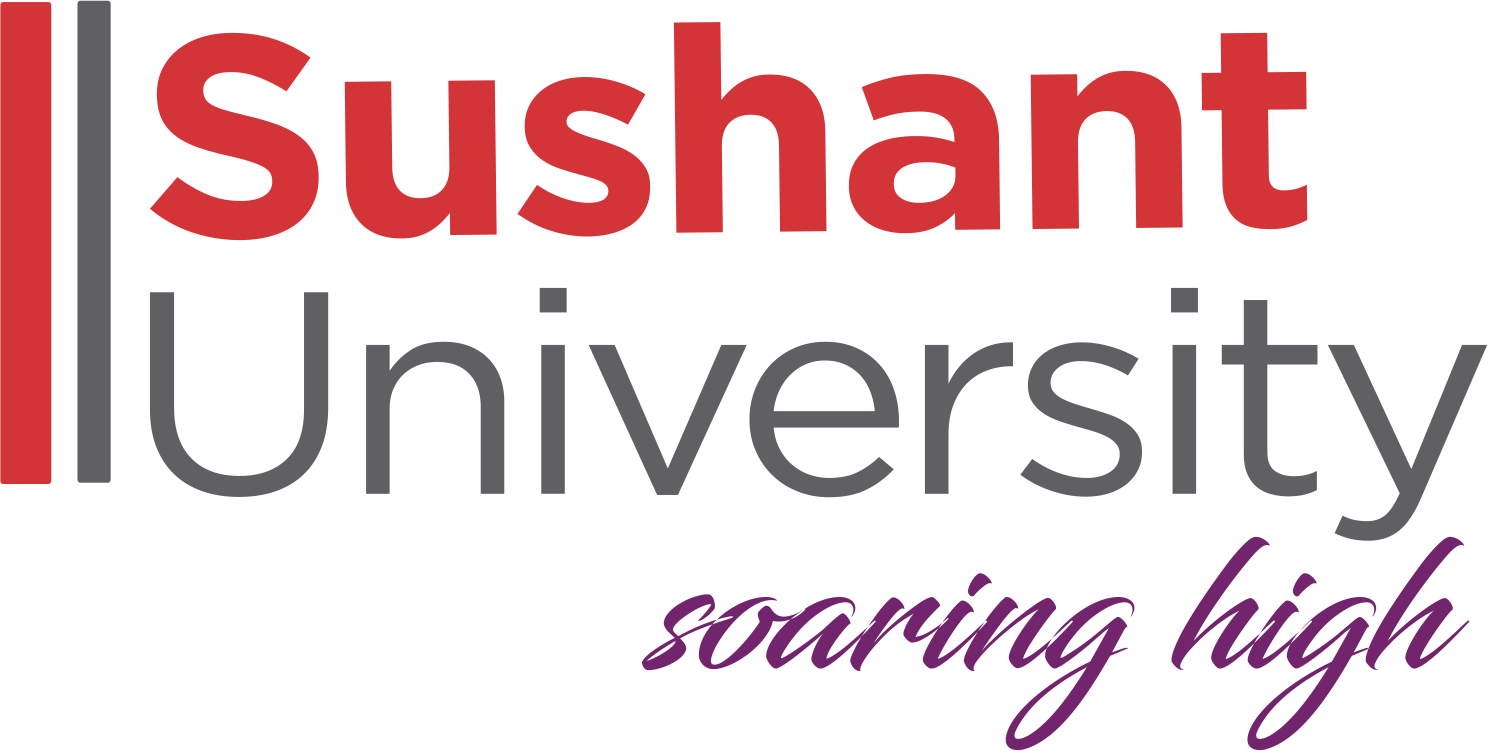Creating 21st century teachers

We as teachers are products of our past…
The theme of the webinar conducted by the Vatel Hotel and Tourism Business Studies on Thursday, October 08, 2020 was How NEP is focusing on creating 21st century teachers.
As a preamble, the presenter of the webinar, Ms. Chandana Paul, assistant professor, in her opening address said – “A teacher must have the capability to produce competent creative, skilled, employable and ethical learners – this is a common factor as it displays the quality, competence and the character of the teacher”
Professor Ashok Lal, while talking about the NEP, said – “There are three fundamental and strategic policies which are embedded in the NEP
1: Each student should have the ability and the freedom to choose a discipline that suits him or her the most. These young students should not become captive to a stratified education system.
2: Development of collaborative work cultures. Since a single narrow work is not enough to do practical work – there needs to be a collaborative structure and one should be able to relate his or her specialization with other disciplines.
3: Prof Lal spoke about something more complex by saying that though it wasn’t written in the NEP document, there is a need to transmit META knowledge, which is about having the understanding of the context and applicability of your knowledge field in a larger frame with which you perceive or, in simple terms, having the knowledge of what knowledge is about and relate the same to the world. That META knowledge something that you grow with after many years of experience and you develop a framework of thinking which enables you to deal with more complex experience and thinking.
As you step out of the university, you should have the capacity to absorb complex information with an overall understanding. This idea of meta knowledge is something that we have to address in which the teachers should be equally involved.
He further on said that “We as teachers are products of our past and we unfortunately haven’t had the benefit, neither the beauty and the complexity and the comprehensiveness of education that we want to construct in the future. We have to undergo our own re-learning and the re-orientation process to adjust these three factors with which we look forward to the NEP.”
Prof, Dr. Latika Singh from Sushant University took a cue and took the session forward by saying “NEP has put in a very systematic thought on reforms that would help in teaching emerging as a respectable profession. Teachers are nation builders as they are the creators and stand to be high resources being critical thinkers and problem solvers. Looking at expectations from the NEP she said that in the current educational system there are still a lot of unmotivated teachers. The NEP says we must train them as they are due for a complete overhaul and it is high time that they started contributing towards the creation of a robust system which is merit based. They are perhaps not very much motivated due to a few personal reasons. Whereas the NEP should propose for such teachers a structured salary, promotion plans, incentives, it should recognize the outstanding teachers, restore the status and the respect of this profession which the teachers duly deserve. We can start hoping that this reformation would also attract the best of minds as they are the ones who can create the best of the minds. Time has come to cease the opportunity and to do our bit in building a strong education system.
Mr. Sasi Menon, dean School of Design, Sushant University spoke about industry-driven education. There is a need to create a connect between what is being taught and what is happening in the field. We also need to be future-driven and that’s what NEP allows us to do. The multi-disciplinary aspect is a very important thrust point which has been introduced by the NEP.
He specified about three things that the NEP would allow our students to achieve.
- Creating a skills trajectory allowing the student’s legitimacy in the job market.
- Creating a leadership trajectory.
- Creating a scholarship trajectory. Wherein the universities would emerge as knowledge hubs . Aspect of incubation. A meaningful implementation of knowledge. BeD scheme becoming a programme for teacher training. Internationalization – flexibility –
This was a unique webinar in which, besides the expressing of views by the experts, a panel discussion was also organized. Responding to a question concerned with the belief that Industry moves faster than academics, Prof Lal reiterated that the thinkers, scientists and researchers behind the industry should also be considered as teachers and their result is evident in the development of industry. Dr. Latika Singh added, “We need to teach the fundamentals very well which will help everybody apply the knowledge and in order to narrow the industry-academia gap, the exposure should be increased, in which internships can help greatly.”
Dr. Menon then added - “Just like the students, the teachers should also be made multi-disciplinary. They should acquire knowledge in its wider proportions and explore upon how his her subject is in relationship with other disciplines. University structure which promotes interactive multi-disciplinary thinking is the best suited for such an activity.
Talking about the involvement of other disciplines, Dr. Lal gave the example of Real Estate which is driven by finance and land values but not so much by the details of designing. Many people can get together and contribute in the Housing for All project in which professors from planning, design, architecture, civil engineering, law and finance can work together. This will help them recognize the value of other disciplines which is mandatory in these times. The NEP promotes this to a great extent.








